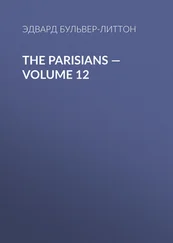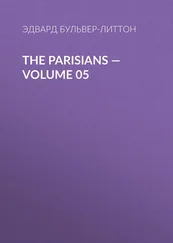Эдвард Бульвер-Литтон - Eugene Aram — Volume 01
Здесь есть возможность читать онлайн «Эдвард Бульвер-Литтон - Eugene Aram — Volume 01» — ознакомительный отрывок электронной книги совершенно бесплатно, а после прочтения отрывка купить полную версию. В некоторых случаях можно слушать аудио, скачать через торрент в формате fb2 и присутствует краткое содержание. Жанр: foreign_prose, literature_19, Европейская старинная литература, foreign_antique, на английском языке. Описание произведения, (предисловие) а так же отзывы посетителей доступны на портале библиотеки ЛибКат.
- Название:Eugene Aram — Volume 01
- Автор:
- Жанр:
- Год:неизвестен
- ISBN:нет данных
- Рейтинг книги:5 / 5. Голосов: 1
-
Избранное:Добавить в избранное
- Отзывы:
-
Ваша оценка:
- 100
- 1
- 2
- 3
- 4
- 5
Eugene Aram — Volume 01: краткое содержание, описание и аннотация
Предлагаем к чтению аннотацию, описание, краткое содержание или предисловие (зависит от того, что написал сам автор книги «Eugene Aram — Volume 01»). Если вы не нашли необходимую информацию о книге — напишите в комментариях, мы постараемся отыскать её.
Eugene Aram — Volume 01 — читать онлайн ознакомительный отрывок
Ниже представлен текст книги, разбитый по страницам. Система сохранения места последней прочитанной страницы, позволяет с удобством читать онлайн бесплатно книгу «Eugene Aram — Volume 01», без необходимости каждый раз заново искать на чём Вы остановились. Поставьте закладку, и сможете в любой момент перейти на страницу, на которой закончили чтение.
Интервал:
Закладка:
At last the use of the meal of the new corn was neglected, and the supper, so far as meal was concerned, was made indifferently of old or new corn, as was most agreeable to the founder. And here the usage itself accounts for the name of "Melsupper" (where mel signifies meal, or else the instrument called with us a "Mell," wherewith antiquity reduced their corn to meal in a mortar, which still amounts to the same thing); for provisions of meal, or of corn in furmety, etc., composed by far the greatest part in these elder and country entertainments, perfectly conformable to the simplicity of those times, places, and persons, however meanly they may now be looked upon. And as the harvest was last concluded with several preparations of meal, or brought to be ready for the "mell," this term became, in a translated signification, to mean the last of other things; as, when a horse comes last in the race, they often say in the North, "He has got the mell."
All the other names of this country festivity sufficiently explain themselves, except "Churn-supper;" and this is entirely different from "Melsupper:" but they generally happen so near together that they are frequently confounded. The "Churn-supper" was always provided when all was shorn, but the "Melsupper" after all was got in. And it was called the "Churn-supper" because, from immemorial times, it was customary to produce in a churn a great quantity of cream, and to circulate it by dishfuls to each of the rustic company, to be eaten with bread. And here sometimes very extraordinary execution has been done upon cream. And though this custom has been disused in many places, and agreeably commuted for by ale, yet it survives still, and that about Whitby and Scarborough in the East, and round about Gisburn, etc., in Craven, in the West. But perhaps a century or two more will put an end to it, and both the thing and name shall die. Vicarious ale is now more approved, and the tankard almost everywhere politely preferred to the Churn.
This Churn (in our provincial pronunciation Kern) is the Hebrew Kern, or Keren, from its being circular, like most horns; and it is the Latin 'corona',—named so either from 'radii', resembling horns, as on some very ancient coins, or from its encircling the head: so a ring of people is called corona. Also the Celtic Koren, Keren, or corn, which continues according to its old pronunciation in Cornwall, etc., and our modern word horn is no more than this; the ancient hard sound of k in corn being softened into the aspirate h, as has been done in numberless instances.
The Irish Celtae also called a round stone 'clogh crene', where the variation is merely dialectic. Hence, too, our crane-berries,—i.e., round berries,—from this Celtic adjective 'crene', round.
The quotations from Scripture in Aram's original MS. were both in the Hebrew character, and their value in English sounds.
BOOK I
CHAPTER I.
THE VILLAGE.—ITS INHABITANTS.—AN OLD MANORHOUSE: AND AN ENGLISH FAMILY; THEIR HISTORY, INVOLVING A MYSTERIOUS EVENT
"Protected by the divinity they adored, supported by the earth which they cultivated, and at peace with themselves, they enjoyed the sweets of life, without dreading or desiring dissolution." Numa Pompilius.
In the country of—there is a sequestered hamlet, which I have often sought occasion to pass, and which I have never left without a certain reluctance and regret. It is not only (though this has a remarkable spell over my imagination) that it is the sanctuary, as it were, of a story which appears to me of a singular and fearful interest; but the scene itself is one which requires no legend to arrest the traveller's attention. I know not in any part of the world, which it has been my lot to visit, a landscape so entirely lovely and picturesque, as that which on every side of the village I speak of, you may survey. The hamlet to which I shall here give the name of Grassdale, is situated in a valley, which for about the length of a mile winds among gardens and orchards, laden with fruit, between two chains of gentle and fertile hills.
Here, singly or in pairs, are scattered cottages, which bespeak a comfort and a rural luxury, less often than our poets have described the characteristics of the English peasantry. It has been observed, and there is a world of homely, ay, and of legislative knowledge in the observation, that wherever you see a flower in a cottage garden, or a bird-cage at the window, you may feel sure that the cottagers are better and wiser than their neighbours; and such humble tokens of attention to something beyond the sterile labour of life, were (we must now revert to the past,) to be remarked in almost every one of the lowly abodes at Grassdale. The jasmine here, there the vine clustered over the threshold, not so wildly as to testify negligence; but rather to sweeten the air than to exclude it from the inmates. Each of the cottages possessed at its rear its plot of ground, apportioned to the more useful and nutritious product of nature; while the greater part of them fenced also from the unfrequented road a little spot for the lupin, the sweet pea, or the many tribes of the English rose. And it is not unworthy of remark, that the bees came in greater clusters to Grassdale than to any other part of that rich and cultivated district. A small piece of waste land, which was intersected by a brook, fringed with ozier and dwarf and fantastic pollards, afforded pasture for a few cows, and the only carrier's solitary horse. The stream itself was of no ignoble repute among the gentle craft of the Angle, the brotherhood whom our associations defend in the spite of our mercy; and this repute drew welcome and periodical itinerants to the village, who furnished it with its scanty news of the great world without, and maintained in a decorous custom the little and single hostelry of the place. Not that Peter Dealtry, the proprietor of the "Spotted Dog," was altogether contented to subsist upon the gains of his hospitable profession; he joined thereto the light cares of a small farm, held under a wealthy and an easy landlord; and being moreover honoured with the dignity of clerk to the parish, he was deemed by his neighbours a person of no small accomplishment, and no insignificant distinction. He was a little, dry, thin man, of a turn rather sentimental than jocose; a memory well stored with fag-ends of psalms, and hymns which, being less familiar than the psalms to the ears of the villagers, were more than suspected to be his own composition; often gave a poetic and semi-religious colouring to his conversation, which accorded rather with his dignity in the church, than his post at the Spotted Dog. Yet he disliked not his joke, though it was subtle and delicate of nature; nor did he disdain to bear companionship over his own liquor, with guests less gifted and refined.
In the centre of the village you chanced upon a cottage which had been lately white-washed, where a certain preciseness in the owner might be detected in the clipped hedge, and the exact and newly mended style by which you approached the habitation; herein dwelt the beau and bachelor of the village, somewhat antiquated it is true, but still an object of great attention and some hope to the elder damsels in the vicinity, and of a respectful popularity, that did not however prohibit a joke, to the younger part of the sisterhood. Jacob Bunting, so was this gentleman called, had been for many years in the king's service, in which he had risen to the rank of corporal, and had saved and pinched together a certain small independence upon which he now rented his cottage and enjoyed his leisure. He had seen a good deal of the world, and profited in shrewdness by his experience; he had rubbed off, however, all superfluous devotion as he rubbed off his prejudices, and though he drank more often than any one else with the landlord of the Spotted Dog, he also quarrelled with him the oftenest, and testified the least forbearance at the publican's segments of psalmody. Jacob was a tall, comely, and perpendicular personage; his threadbare coat was scrupulously brushed, and his hair punctiliously plastered at the sides into two stiff obstinate-looking curls, and at the top into what he was pleased to call a feather, though it was much more like a tile. His conversation had in it something peculiar; generally it assumed a quick, short, abrupt turn, that, retrenching all superfluities of pronoun and conjunction, and marching at once upon the meaning of the sentence, had in it a military and Spartan significance, which betrayed how difficult it often is for a man to forget that he has been a corporal. Occasionally indeed, for where but in farces is the phraseology of the humorist always the same? he escaped into a more enlarged and christianlike method of dealing with the king's English, but that was chiefly noticeable, when from conversation he launched himself into lecture, a luxury the worthy soldier loved greatly to indulge, for much had he seen and somewhat had he reflected; and valuing himself, which was odd in a corporal, more on his knowledge of the world than his knowledge even of war, he rarely missed any occasion of edifying a patient listener with the result of his observations.
Читать дальшеИнтервал:
Закладка:
Похожие книги на «Eugene Aram — Volume 01»
Представляем Вашему вниманию похожие книги на «Eugene Aram — Volume 01» списком для выбора. Мы отобрали схожую по названию и смыслу литературу в надежде предоставить читателям больше вариантов отыскать новые, интересные, ещё непрочитанные произведения.
Обсуждение, отзывы о книге «Eugene Aram — Volume 01» и просто собственные мнения читателей. Оставьте ваши комментарии, напишите, что Вы думаете о произведении, его смысле или главных героях. Укажите что конкретно понравилось, а что нет, и почему Вы так считаете.












